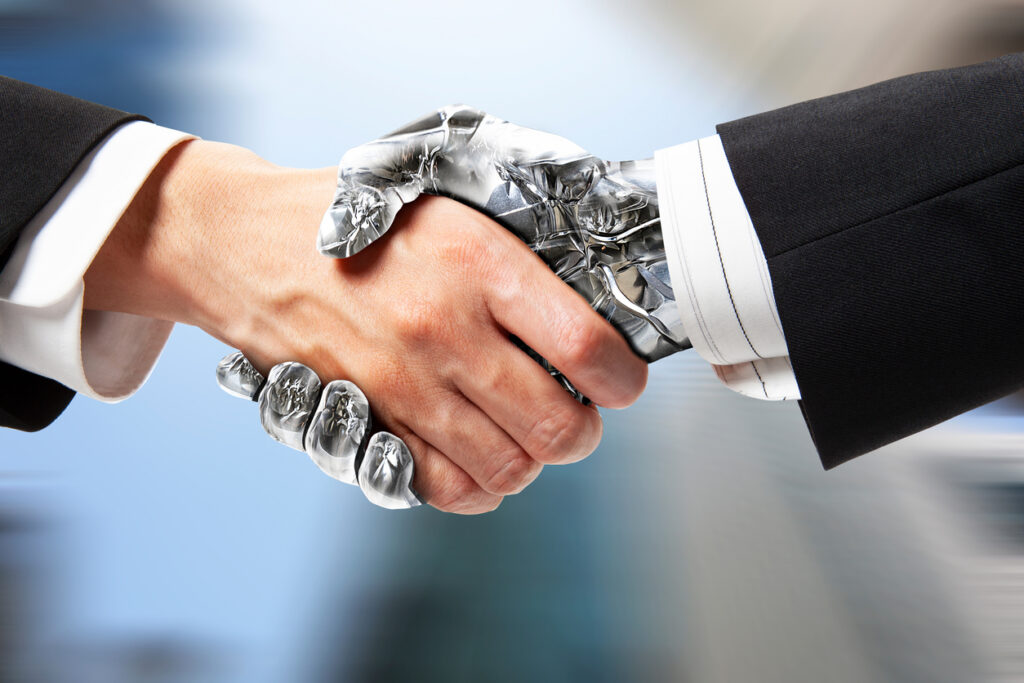AI is here, and it’s ready to transform your employee experience. While most businesses recognise the power of AI, many are unsure of how to implement it in their own workplace. Here are some examples of how AI can benefit your employees at work.
Communication
When we are at work, our interpersonal relationships have a huge bearing on how much enjoyment and fulfillment we can get out of our work.
AI is well equipped to give you key insights about how your employees interact with each other, and how to maximise their potential as a team.
If you want to know which combination of team members work best together, or which employees would be well suited to take the lead on a certain project, AI can give you crucial information and make intelligent recommendations.
This sort of data would be time-consuming and difficult to come by without the use of AI, but it can have a huge impact on your team’s operational efficiency and quality of work.
Mental health
Whilst AI can never replace a human connection or treatment from a qualified medical professional, it can be a useful tool for handling issues relating to mental health in the workplace.
AI can create a personalised plan for supporting an employee suffering from poor mental health.
It can even recommend some useful techniques for boosting mental wellbeing in the workplace.
AI can analyse the success of your job ads, be the first port of call for any applicant questions, and help to provide a better overall first impression of your company.
Using validated information from a certified mental health professional, you could even train your AI to recognise warning signs of an employee at risk of poor mental health.
This would allow your HR department to provide additional support or, where appropriate, intervene in other ways.
You should always seek support from mental health professionals when implementing these measures, but ultimately, they can lead to much-improved wellbeing support for your employees.
Recruitment
Rather than limiting your AI to only improving the experience of your current employees, why not introduce it as part of your recruitment process?
AI can analyse the success of your job ads, be the first port of call for any applicant questions, and help to provide a better overall first impression of your company.
Due to the nature of AI requiring parameters generated by human input to function properly, you could also use this to focus your improvements on certain recruitment issues you wish to tackle.
For example, if you struggle to recruit people from a particular gender demographic, you could provide instructions to your AI on the use of gendered language in your job ads.
This will allow you to improve your job postings so attract talented applicants, regardless of their gender.
Similarly, AI can also be used to reduce any unconscious biases present throughout your hiring process.
This allows you to attract a more diverse field of applicants and to give everyone the same chance of progressing through the process.
Onboarding
Improving the experience your employees have at work begins on their very first day at the company.
In fact, studies have shown that the first 90 days an employee has at a company are the most important for forming opinions about the company ethos, colleagues, and their own future at the company.
When it comes to onboarding, the Society for Human Resource Management has identified four key domains for onboarding a new employee. They are, from least to most important: compliance, clarification, culture, and connection.
Using machine learning, AI can give you insights on when, where, and how your employees learn and develop the most.
Compliance covers the introduction of company rules and regulations, while clarification ensures that employees have a thorough understanding of all their requirements and expectations.
AI can support in these areas by automating manual tasks such as sending out introductory paperwork, pointing the employee in the direction of relevant resources, and answering other basic orientation questions.
Culture and connection are more difficult to cultivate but are the emotional and most important aspects for long-term employee retention.
AI can support here by scheduling introductory meetings with different team members, and setting up casual coffee catch ups. This helps your new employee to form friendships and to expand their network.
Training
AI can be a hugely powerful tool when it comes to training your employees, as it offers a level of personalisation that would be much harder for a human HR department to achieve.
Using machine learning, AI can give you insights on when, where, and how your employees learn and develop the most.
It can also offer individual feedback on training programmes, both on areas for improvement and on areas in which an employee is excelling.
If a team member is struggling with a particular aspect of their work, this can be flagged by the machine learning algorithm and additional training exercises recommended to help to improve those skills.
This feedback can be given on an individual, department, or company level.
This gives managers greater insight into the performance of their teams, helping to improve productivity and efficiency.
The long game
Clearly, there is a huge competitive advantage to be gained by introducing artificial intelligence into your workplace.
Not only will you be able to attract and retain a higher quality of employee, but this will also help to improve your business offering and to provide a greater quality of product and customer service to your client base.
Your HR department does not need to understand the intricacies of artificial intelligence to be able to use it to improve your employee experience.
It simply needs to realise the wide-ranging capabilities of AI and machine learning, and be able to apply this in a beneficial way.
[cm_form form_id=’cm_65a14c3f5da64′]
Ultimately, companies will need to accept that AI means business and it is here to stay.
Rather than resisting the change and getting left behind, businesses should take the chance to get ahead of the curve, use AI to attain a competitive advantage, and give their company the best chance of succeeding in a data-driven marketplace.
Interested in this topic? Read Digital transformation: balancing AI and EI in the digital workplace.






